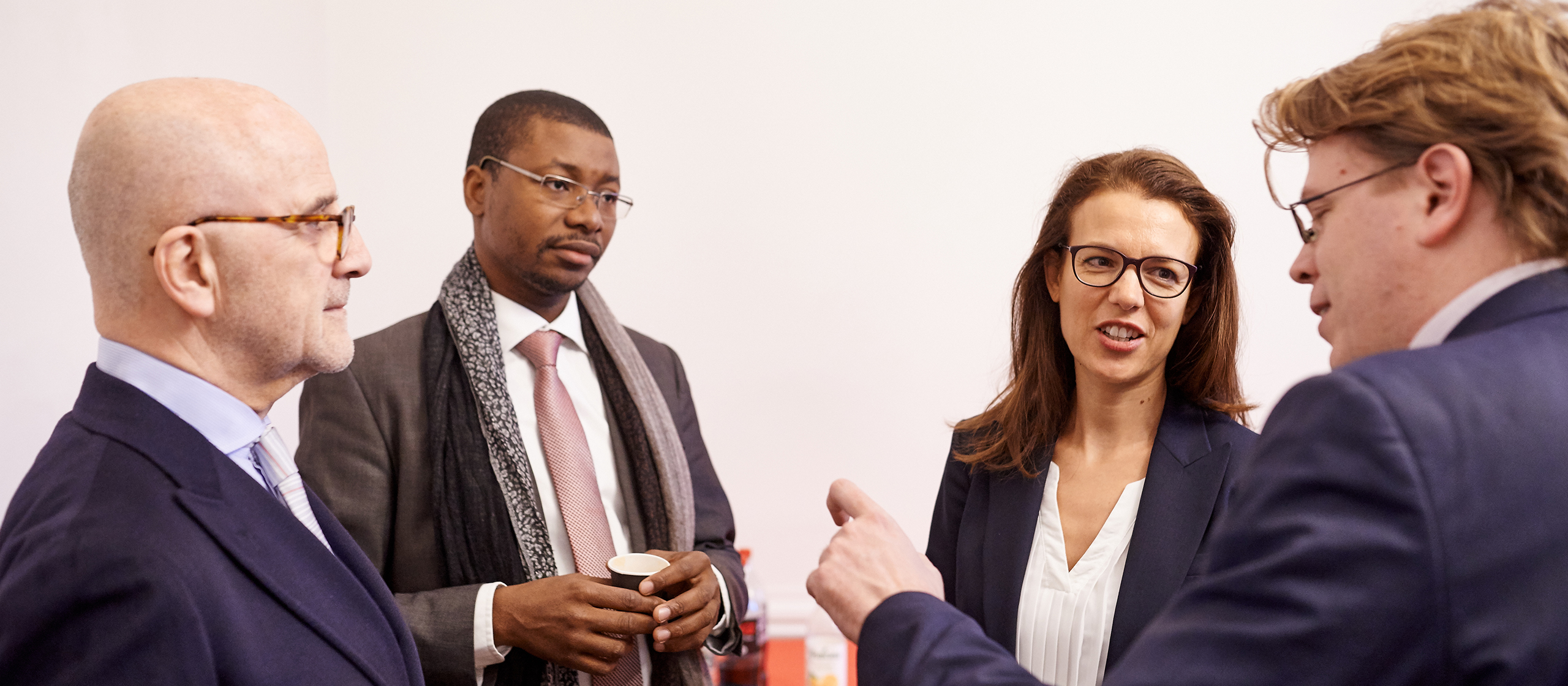Trilateral Initiatives in Emerging Regions Grant Recipients
Conservatism in India
- Time Period
- 2016-2017
- Investigators
- Christophe Jaffrelot, Sudipta Kaviraj, Malvika Maheshwari
- Affiliation
- Columbia University, Sciences Po
| Time Period | Investigators | Affiliation |
|---|---|---|
| 2016-2017 | Christophe Jaffrelot, Sudipta Kaviraj, Malvika Maheshwari | Columbia University, Sciences Po |
Description
"Conservatism in India" is a Trilateral Intiatives in Emerging Regions (T.I.E.R) project led by Sudipta Kaviraj (Columbia University), Christophe Jaffrelot, (Sciences Po), Malvika Maheshwari (Ashoka University). The project covers Indian politics, religion, and tradition.
Publications
Conservatism is a grand and powerful tradition in Indian politics that has been hidden in plain sight, overshadowed by the liberal and socialist nationalism of the ruling parties in India for most of the later half of the twentieth century, and more recently by intellectual frameworks that privilege ascriptive identities and material interests over ideological conviction in explaining political outcomes. Yet, conservative attitudes abound in India. The success of the conservatives is intriguing because new entrepreneurs are emerging, especially in the service sector, love marriages are multiplying, caste hierarchies are eroding, the state seems to be undertaking some structural reform as the plebians play a more important role in the state apparatus, and reform movements are transforming religion. In this project, we seek to understand the Indian conservative tradition in its own terms – its core principles, its internal diversity– and how it has shaped Indian politics. The study of this conservatism is important because India, one of the few countries in the world, which has not experienced a révolution, has been hailed lately for its sense of technological innovation. But this modernization does not preclude the resilience of conservative attitudes in a variety of domains. The project seeks to bring together scholars from different disciplines to understand and explore the various facets of Indian conservatism.
Citizenship and Religion in the Global South
- Time Period
- 2016-2017
- Investigators
- Mamadou Diouf , Richard Banégas , Etienne Smith
- Affiliation
- Columbia University, Sciences Po, Université Mohammed VI Polytechnique
| Time Period | Investigators | Affiliation |
|---|---|---|
| 2016-2017 | Mamadou Diouf , Richard Banégas , Etienne Smith | Columbia University, Sciences Po, Université Mohammed VI Polytechnique |
Description
"Citizenship and Religion in the Global South" is a Trilateral Intiatives in Emerging Regions (T.I.E.R) project led by Richard Banegas (Sciences Po), Mamadou Diouf (Columbia University), Etienne Smith (Université Mohammed VI Polytechnique, Morocco). The project covers Comparative African Studies.
Publications
Studies of the Global South, and Africa in particular, are becoming more and more multipolar. As Morocco’s academic sphere is positioning itself as a new emerging actor for the study of Africa, thetradition of excellence in African Studies embodied by Columbia University’s and Sciences Po‘s provides for a timely trilateral blending of expertise with the new Chair in Comparative African Studies created at the Université Mohammed VI Polytechnique (UM6P) in Rabat. Faculty from these three institutions have decided to join forces to offer students state of the art research on the African continent, focusing on two important themes of contemporary relevance: citizenship and religion.
De-Provincializing Soft Power: A Global-Historical Approach, 1990-2015
- Time Period
- 2016-2017
- Investigators
- Richard Balme, Victoria de Grazia, Yiwei Wang
- Affiliation
- Columbia University, Sciences Po, Renmin University of China
| Time Period | Investigators | Affiliation |
|---|---|---|
| 2016-2017 | Richard Balme, Victoria de Grazia, Yiwei Wang | Columbia University, Sciences Po, Renmin University of China |
Description
De-Provincializing Soft Power: A Global-Historical Approach, 1990-2015 is a Trilateral Initiatives in Emerging Regions (T.I.E.R) project led by Richard Balme (Sciences Po), Victoria de Grazia (Columbia University), Yi Wei Wang (Renmin University). The project covers International History, International Relations, Communications, and Cultural studies.
Publications
Columbia University (European Institute and Columbia Global Centers | East Asia), Sciences Po, and Renmin University are partnering in a research project leading to a two-day conference in Beijing in May 2016 to study China’s use of cultural power in foreign relations in the period from circa 1990 to 2015. Project participants will analyze China’s concepts and practices of cultural power in the light of the US and European experiences of soft and normative power, and will also compare them with the experiences of Turkey and Brazil. This is the second phase of a three-year project, "De-Provincializing Soft Power: A Global-Historical Approach, 1990-2015," which was started in the fall of 2014 and which brings together an international group of scholars and students who combine innovative methodologies from international history, international relations, communications, and cultural studies. The main outcomes of this three-year project will be a collaboratively written global history of soft power, student research, and an open-access website.

